We explain everything about Iceland, how is the history and culture of this country. Also, what are its characteristics, economy, and curiosities?
What is Iceland?
The Republic of Iceland is a sovereign nation in the extreme northwest of Europe, located on an island of the same name and the small islets around it in the North Atlantic Ocean. It is geographically located between Greenland and Northern Europe.
Its location on the mid-Atlantic ridge gives it great volcanic and geological activity, which configures its landscape to a greater extent. The interior of the island consists of a plateau characterized by deserts, mountains, glaciers, and melt rivers that flow into the sea. The Icelandic landscape is uniquely beautiful.
History of Iceland
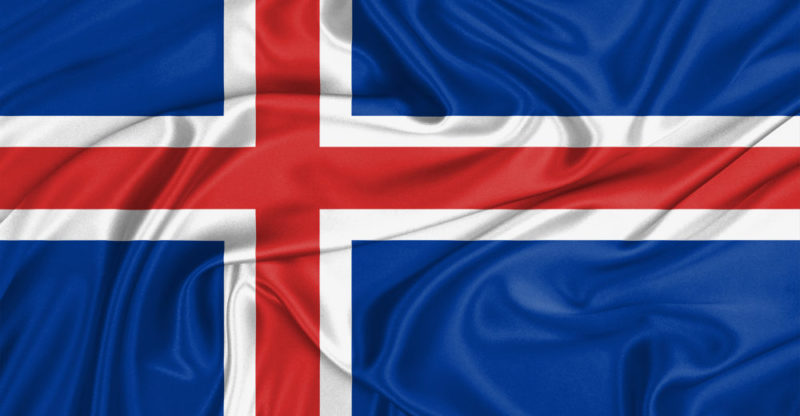 The first known Icelandic settler was Ingólfur Arnarson, who settled in the territory of present-day Reykjavik in 874.
The first known Icelandic settler was Ingólfur Arnarson, who settled in the territory of present-day Reykjavik in 874.It was followed by many later Norse settlers and their Irish slaves.
The community thus created was evangelized around the year 1000, it was added to the Norwegian crown in 1262.
It then passed into the hands of Denmark-Norway at the end of the 14th century, when the Kalmar Union emerged.
During the following centuries, Iceland was one of the poorest nations in Europe.
At the beginning of the 19th century, the Napoleonic Wars divided Denmark and Norway through the Treaty of Kiel, leaving Iceland in Danish hands.
The living conditions, after volcanic eruptions and local epidemics, prompted the emigration of its citizens, who fled mainly to Canada throughout the century.
Later, the Icelandic Independence Movement emerged, led by Jón Sigurösson, thanks to which the island obtained its own constitution in 1874 and an autonomous government with limitations, which was later expanded in 1904.
In 1918 Iceland was announced to the world as a sovereign nation, under the name of the Kingdom of Iceland, existing in communion with Denmark, to the point that the Danish embassies operated with the shields of both nations.
In 1943 the Icelanders elected in a public referendum the end of the monarchy and the establishment of a Republic, whose first president was Sveinn Björnsson.
Capital of Iceland
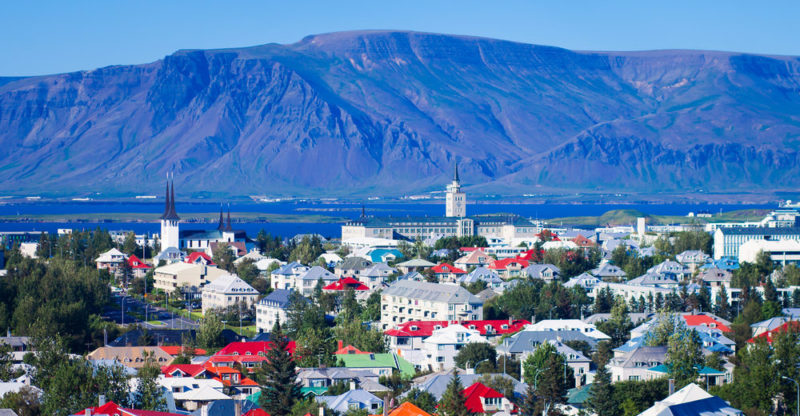 The capital of Iceland is the city of Reykjavik, its most populous city. It is located south of Faxaflói Bay, abundant in geysers and very close to the Arctic Circle, being the northernmost capital in the world.
The capital of Iceland is the city of Reykjavik, its most populous city. It is located south of Faxaflói Bay, abundant in geysers and very close to the Arctic Circle, being the northernmost capital in the world.It has a population of around 200,000 inhabitants (counting its metropolitan area) and is one of the greenest, cleanest and safest cities on the planet.
Iceland Population
Iceland is a very sparsely populated nation. It reaches 336,460 total inhabitants, with a density of just 3.27 inhabitants per square kilometer.Icelanders are mostly of Nordic and Irish origin, with complete genealogical records dating back to the late 17th century.
Iceland Economy
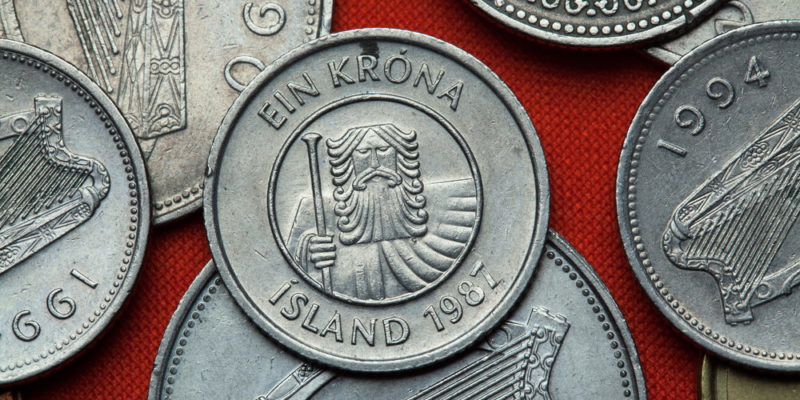 Iceland has an industrialized and free-market economy, which in 2008 had the seventh-highest nominal GDP per capita in the world (the US $ 55,462).
Iceland has an industrialized and free-market economy, which in 2008 had the seventh-highest nominal GDP per capita in the world (the US $ 55,462).The island however lacks natural resources , as they are not abundant sources of geothermal energy and hydropower, or the fishing industry , which dedicates 7% of the strength of labor and contributes 40% of operating income.
Tourism is another important economic activity. Until the 20th century, Iceland was an extremely poor country, and since then it grew to reach the highest Human Development Index (HDI) according to the United Nations between 2007 and 2008.
Its currency is the Icelandic krone (ISK).
Icelandic language
The official language of Iceland is Icelandic, a North Germanic language closely related to Faroese and the western dialects of Norwegian. It is the only Scandinavian language that does not have dialect variations.
Icelandic culture
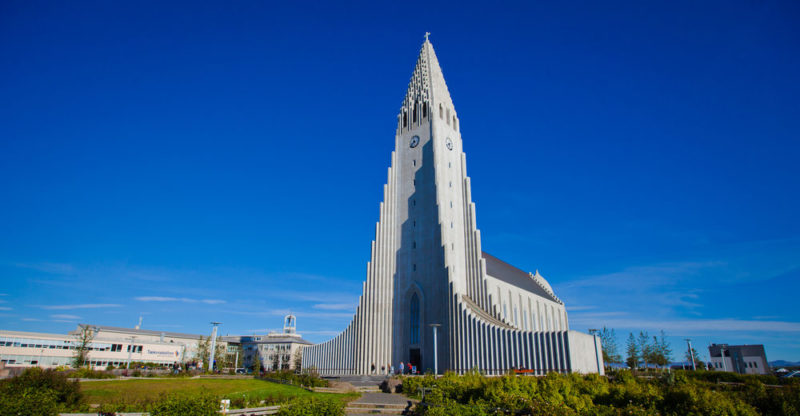 Icelandic culture is anchored in its Nordic and Scandinavian roots, of which its sagas and Eddas (forms of the literary epic) are world-renowned, such as the Saga of the Greenlanders or the Saga of Erik the Red.
Icelandic culture is anchored in its Nordic and Scandinavian roots, of which its sagas and Eddas (forms of the literary epic) are world-renowned, such as the Saga of the Greenlanders or the Saga of Erik the Red.In addition, they consider Norse mythology very close, and local landscapes play a predominant role in their painting.
As for music , the nation plays an important role in the Nordic music industry, with bands like The Sugarcubes, Sigúr Ros, and the singer Björk, among others.
Icelandic gastronomy is another fundamental aspect of its culture, with a huge predominance of seafood and fishing. Currently, its diet is extremely diverse, with a gastronomic presence from all regions of the world.
In religious matters, freedom of worship is total, although the National Church of Iceland, belonging to Lutheranism, is the state religion.
The percentage of faithful Catholicism does not exceed 2.5%, lower even than agnostics or atheists (3%) or practitioners of other religions (9%).
Climate of Iceland
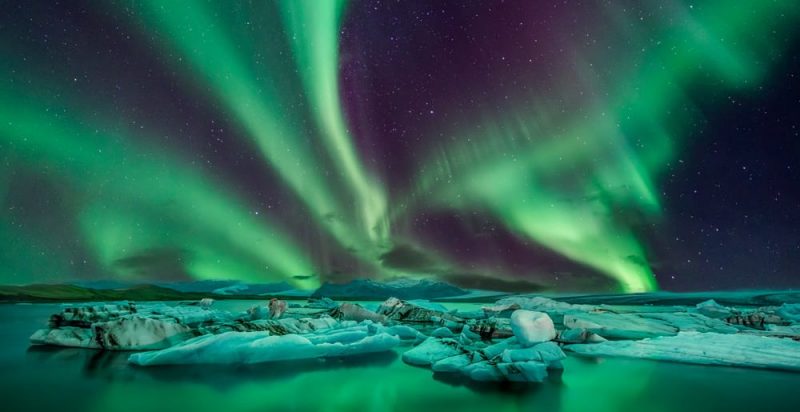 The climate of Iceland is temperate, despite its location so close to the polar region due to the Gulf stream.
The climate of Iceland is temperate, despite its location so close to the polar region due to the Gulf stream.The temperatures can vary greatly from one region to another island, being the southern coast warmer, humid and windy, while the northern region is more prone to snowfall and arider.
The annual average on the island is a maximum of 7.4 ° C and a minimum of 2.6, rising to 14 or 16 degrees in summer and dropping to -10 degrees in winter.
One of the most peculiar features of the island is that in winter gets about 4 hours of light sun and summer nights are as clear as day.
Iceland Sports
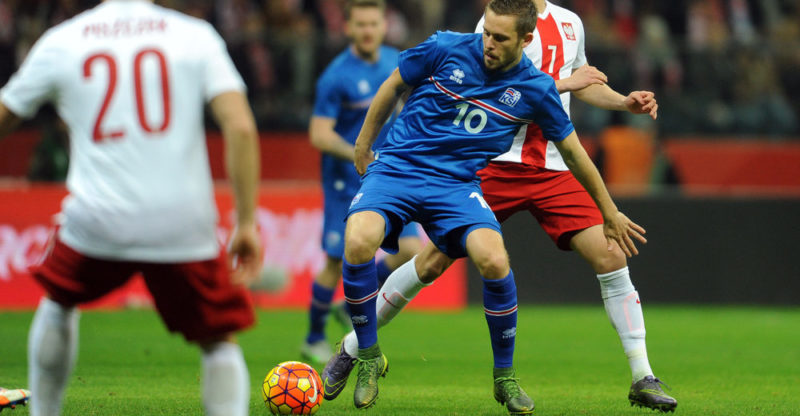 Sports are an important part of the culture in Iceland. They have their own traditional sport, glioma, a type of fighting originating in the Middle Ages.
Sports are an important part of the culture in Iceland. They have their own traditional sport, glioma, a type of fighting originating in the Middle Ages.Soccer, athletics, handball, and basketball are also practiced. Chess is another successfully practiced discipline, as is a strongman.
In 2016, his soccer team qualified for the Eurocup for the first time, and in 2018 they qualified for the soccer World Cup held in Russia for the first time, which meant being among the top 20 teams in the world.
Iceland tourist attractions
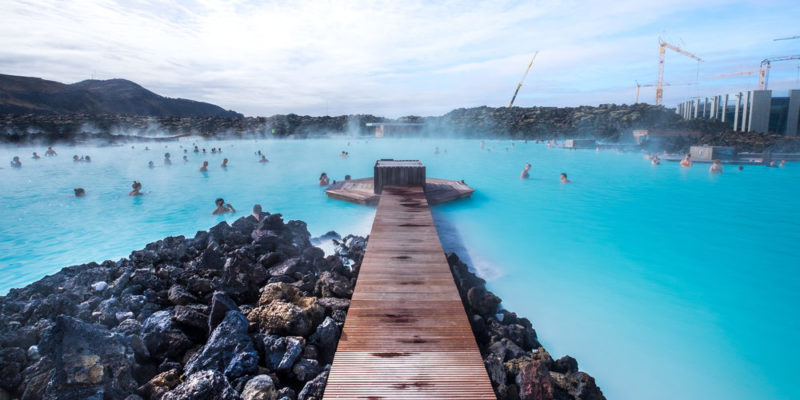 Tourism in Iceland has become an economic activity on the rise, especially for lovers of more direct contact with nature.
Tourism in Iceland has become an economic activity on the rise, especially for lovers of more direct contact with nature.There is even talk of a tourist “boom”, which takes advantage of its unique landscapes of volcanoes and geysers, such as its pools of warm thermal waters, surrounded by snow, its natural falls, and its circuits back to the island.
Fun facts about Iceland
Some peculiarities about Icelandic society:
- Iceland is the country with the smallest wage gap between men and women in the world. In fact, its prime minister is Katrín Jakobsdóttir.
- There is no McDonald's on the entire island after the company closed in 2009.
- Iceland does not have its own army, which does not prevent it from being a member of NATO.
- In Reykjavik, there is the most famous penis museum in the world.
The above content published at Collaborative Research Group is for informational and educational purposes only and has been developed by referring to reliable sources and recommendations from technology experts. We do not have any contact with official entities nor do we intend to replace the information that they emit.
Veronica is a culture reporter at Collaborative Research Group, where she writes about food, fitness, weird stuff on the internet, and, well, just about anything else. She has also covered technology news and has a penchant for smartphone stories. .
Leave a reply
Your email address will not be published. Required fields are marked *Recent post

Sport: What Is It, Types, Risks, Features, Characteristics and Examples

Dogs: Emergence, Features, Characteristics, Feeding and Breeds

Story: Definition, Elements, Structure, Features and Characteristics

